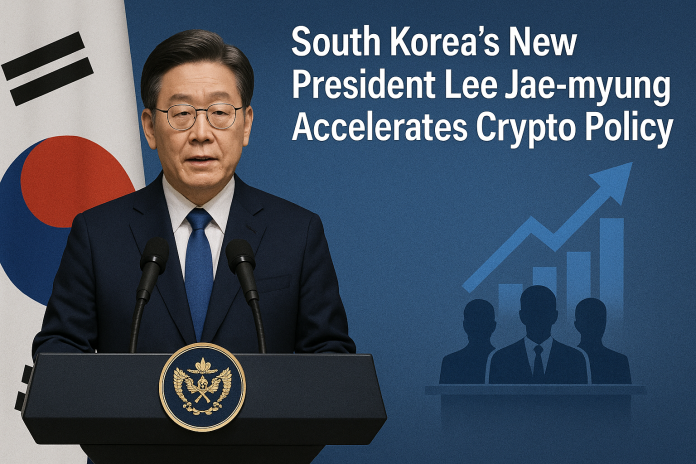
In June 2025, the newly inaugurated administration of President Lee Jae-myung is spearheading a significant shift in South Korea’s cryptocurrency policy—from regulation-focused oversight to proactive industry development. This transition is reflected in both structural reorganization within the ruling Democratic Party and accelerated legislative momentum.
The Digital Asset Committee, formerly operating under the party’s election campaign, is set to be elevated into an official standing body named the “Special Committee on Digital Assets.” Moving beyond its initial advisory role, the new committee will take charge of shaping and overseeing comprehensive digital asset policies. Democratic Party lawmaker Min Byung-deok, who currently chairs the committee, is expected to introduce the Digital Asset Basic Act, and the committee is anticipated to play a central role in fine-tuning and passing the legislation.
Separately, the administration will also establish a Presidential Committee on Digital Assets, fulfilling one of Lee’s core campaign promises. The proposed body, also embedded in the draft of the Digital Asset Basic Act, will be composed of around 20 members, with more than half drawn from the private sector, including two co-chairs representing both public and private sectors. This model reflects a strategic move away from regulation-dominated frameworks and toward public-private collaboration aimed at promoting innovation.
The Presidential Committee will function as a high-level deliberative and decision-making body, responsible for guiding long-term strategies and system reform in the digital asset sector. This marks the first official launch of a government institution focused not on regulating but actively fostering the virtual asset industry.
Global media outlets such as the Financial Times and Bloomberg have taken note, calling this a potential turning point for Korea to reassert its position as a leading digital asset hub in Asia and beyond.
Observers are also watching closely to see whether other major crypto-related pledges from President Lee will follow, including:
- Approval of spot cryptocurrency ETFs
- Launch of KRW-backed stablecoins
- Reduction of trading fees
- Expansion of the tokenized securities (ST) ecosystem
With leadership transferring from regulatory bodies to industry-enabling institutions, South Korea’s crypto and digital finance landscape is entering a bold new chapter.






